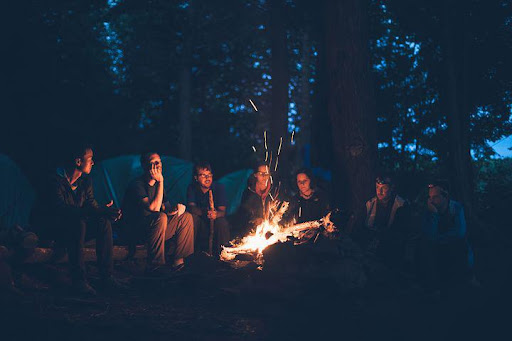For many people, the main goal of a Camping trip is to explore and experience nature. While others see it as a chance to relax while escaping the hustle and bustle of the city. Whatever the purpose, safety is extremely important on a camping trip and should be taken seriously. According to statistics, 22.5% of non-fatal injuries occurs during a camping or hiking trip. With that in mind, these tips will keep you safe on your camping trip.
- Choose the right shelter and site
When you are traveling to a camping site far from home, the perfect thing to do is locate a suitable spot and shelter. Not all campsites offer the same level of protection, which explains why you need to tread carefully. Some camping sites offer a more realistic camping experience. Therefore, the protection may not be up to standard. In this case, your safety is in your hands.
Appropriate camping spots and shelters should be appropriate to your physical limitations and age. It is advisable to consider your medical needs if you have a pre-existing health condition. People use tarps, cabins, or tent shelters on many camping trips. Others prefer RV camping which regularly provides additional security amenities for campers. While statistics show that 60% of campers prefer to pitch their tent on site, it is best to choose something that works for you.
- Have the right camping equipment and understand how to use it
Any equipment related to camping is equipment. Sleeping bags, tents, cooking kits, first aid kits, tactical equipment, and so on, are examples of camping equipment you might need. The goal is to increase convenience and luxury when you embark on a camping trip. Besides packing the right camping gear, the most vital thing is knowing how to use it.
For example, if you are packing a tent, do you try setting it up at home first? Familiarizing yourself with operating your equipment before leaving for a camping trip can’t be neglected. The last thing you want is to find yourself in trouble in the middle of nowhere. Having the right camping equipment and knowing how to use it significantly ensures your safety. Finally, it can be helpful to practice campfire safety at all times. It starts with knowing that any fire you start needs to be at least 15 feet from the tent and surrounding plants.
- Keep updated on climatic conditions
Thanks to technology, it is simple to be updated on climatic conditions in any geographic location. As a camper this will be very useful to make sure your safety. Checking the sky alone to determine the weather for a full day may seem primitive. And the weather can change within an hour. Therefore, visual cues alone cannot provide adequate information.
As a precaution, it’s advised to pack for all climatic conditions when camping. It does not matter what time of year it’s. The rule here is better to be safe than sorry. In addition, as a camper, you must at all times be prepared. In that case, remember to pack for cold, hot, and in-between climatic conditions.
If you are a novice camper, your safety starts with reading about the mandatory guidelines.












